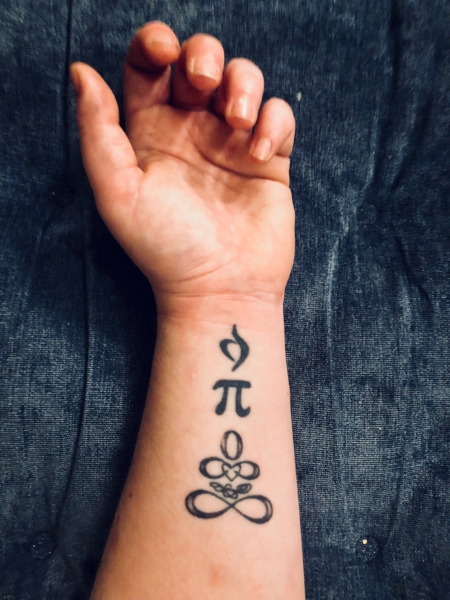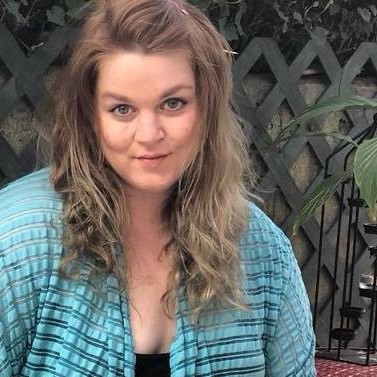Thea Shire, MA, LMHC
At T. Shire Counseling, we offer trauma-informed mental health services to individuals couples, and families in the Fremont neighborhood of Seattle. Our main goal is to teach our clients the same skills we use to cope with life's most painful struggles.
My Story
The journey to recovery from Trauma can be an isolating and terrifying thing to endure. Our bodies carry the wounds of the past into our present form, and glimpses of that pain can appear unexpectedly. We feel our hearts race, become dizzy, and the world closes in around us. It may feel as though we are no longer in control of our own lives and being led or held captive by the parts of us who are still afraid, hurt, angry, or disgusted. We may act out and hurt those around us in an attempt to protect ourselves from repeats of the past. But we do not have to be prisoners to our histories. With looks into our first attachments to care-givers and other pre-verbal experiences, as well as the major events where our lives were in danger, we may find hints of the residual energy that remains in our bodies from the experiences of the past. We may discover patterns of behavior that indicate our most painful responses. And, if we learn to release this pent up energy; to sooth our inner children that have experienced so much suffering, and coach them through finding safety, worthiness, and love in the world as it is right now, we can learn to walk through our lives as our own leaders, no longer prisoners of our past traumas.
I believe it is possible to heal even our most sacred attachment wounds and free ourselves from the binds of trauma. Although it is often a slow, painful, and intimate process; every time I find myself on the other side of solid boundaries, open communication, and the unconditional positive regard that can come from forming secure attachments, my faith in the therapeutic process grows stronger. I truly believe that if a person is able to get the support they need from even one person in their life, so they can truly know what it is like to experience a healthy bond with another human-being, the doors to healing even the most complex, deeply rooted, and unexamined traumas can be opened.
My name is Thea Shire and I am an EMDR trained therapist in Seattle whose passion is healing both "capital T" Traumas, as well as deep-rooted developmental traumas. In my private practice, T. Shire Counseling, I work with individuals (of all ages), couples, families, and groups. I am strongly influenced by Bowlby's Attachment theory, family systems theory, behavior analysis, somatic awareness, art therapy, and play therapy (for all ages). I am also a queer counselor, and a counselor of the queer! I believe in building lasting bonds with my clients and sharing in their journeys of self-discovery and healing.
My previous work was as a Registered Behavioral Technician counseling kiddos, young adults, and parents of individuals with Autism Spectrum Disorder and other developmental disabilities doing Applied Behavioral Analysis in office, home, and school settings. I interned as a child and family therapist at NAVOS in West Seattle. I earned my Bachelor's degree in Psychology with a studio art minor from Seattle University and my Master’s degree in Psychology with counseling specialization from Seattle’s LIOS program.
If you are looking to get through your pain and find peace and playfulness in your life again, I may be a good fit for you. Feel free to call/text/email me to set up a FREE 30 minute consultation! I love getting to know people in both short-term and long-term relationships. I believe it is in caring for our relationships with ourselves and others that we can learn to heal our attachment wounds and build strong, secure, lasting bonds with others, all the while feeling heard, seen, and loved.
I look forward to getting to know you!
TRUST YOUR GUT. LEAD WITH YOUR HEART.


In school one of my incredible professors, Alex Onno, PhD, LMHC, drew a doodle for the class that would go on to change my life forever. It consisted of a small oval that represents the head, an infinity sign below the oval symbolizing arms held together around a heart in the center. Directly below the heart/infinity symbol was a hilariously chaotic mass of squiggles that wrap and twist around together to represent a person’s gut. Finally, underneath the gut is another, larger, infinity symbol that shows legs sitting in a cross-legged position. I was immediately captivated by this image and copied it down in my notes.
We are taught from an early age in school that our brains are incredibly powerful organs that use neurons to translate information so that we can make sense of the world around us. Intelligence is a valued trait and our brains are often given full credit for how we make our decisions. Rational, decisive, and analytic abilities are considered some of the most important qualities in today’s highly competitive educational systems and workforce. Oftentimes, emotional intelligence is seen as a less valuable quality as many people are afraid of trusting their intuitions and making decisions based on their emotional state, because sometimes the decision may not make perfectly rational sense. As such, many managers choose to hire people who are more led by critical thinking than emotional awareness. There are many different theories for why this is the case.
Some people believe it is because men (on average) are credited for being more rational than their emotional female counterparts, and historically men have been the ones in the workforce. Thankfully, this stereotype has been and continues to be challenged. In fact, modern Psychophysiological research has found that it is not just our brains that contain all those decision-making neurons (Decker, 2013). They also concentrate directly in our heart, and our digestive system. This is where the phrase “trust your gut” comes from. And people who have high emotional intelligence often say their personal decision-making is “led by their heart.” In fact, scientists have found that there is actually a much greater concentration of neurons in a person’s stomach than in their brain! Whereas our brains have roughly 100,000 neurons, our heart also controls 40,000, and our stomachs manages a massive 10,000,000 neurons!
When I first learned this, my mind was absolutely blown, and yet at the same time I felt a deep sense of validation. It can take a lot of practice and mindfulness to be able to intentionally use your heart or your gut to carry you through the world. For example, when you are choosing to listen to your gut’s intuition in order to find your way out of a forest, your brain may be having a difficult time explaining why you inherently believe that is the way out. Or when you are taking a test and you initially choose one answer because it “feels right” but your brain second-guesses your instincts and you end up changing your mind only to find out later that you were right in the first place. Or when you see an exhausted looking mother struggling to juggle unloading her cart of groceries, and the crying infant on her hip, you may have a powerful urge to help her get through that moment before you even have a chance to stop to analyze whether or not you have time to do this. In these situations our brains may be taking a break because either our heart-strings are being pulled or our gut instincts are activated. So why do we so often neglect these parts of ourselves and place such a higher value on the decision-making done in our brains?
Ever since I saw my professor’s doodle, this question has been a frequent visitor. It became such a powerful reminder to me to learn to practice actively trusting my gut and leading with my heart. I believe balance is the best way to honor all the many parts of ourselves. As such, with my professor’s consent, I adopted her doodle and turned it into my business logo as a friendly reminder to pause my over-thinking tendencies and allow my other systems a chance to figure things out. Now I even have the design permanently tattooed onto my wrist so that I am always just a glance away from remembering to trust my gut and lead with my heart.
CERTIFICATIONS
Licensed Mental Health Counselor, #LH61552119
Washington State Department of Health
EDUCATION
M.A., Psychology with Counseling Specialization, Saybrook University, 2018 B.A., Psychology with Studio Art Minor, Seattle University, 2012


